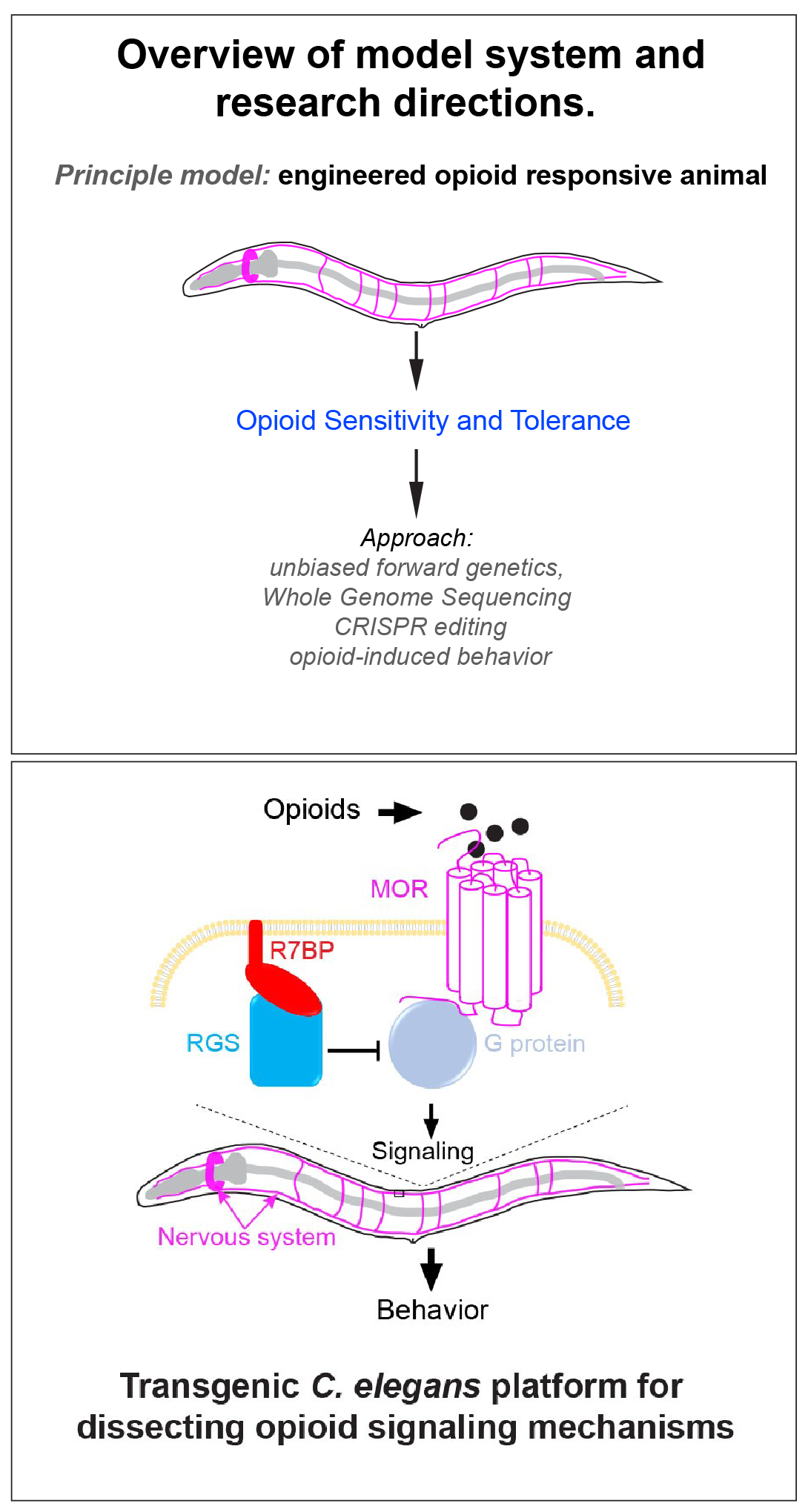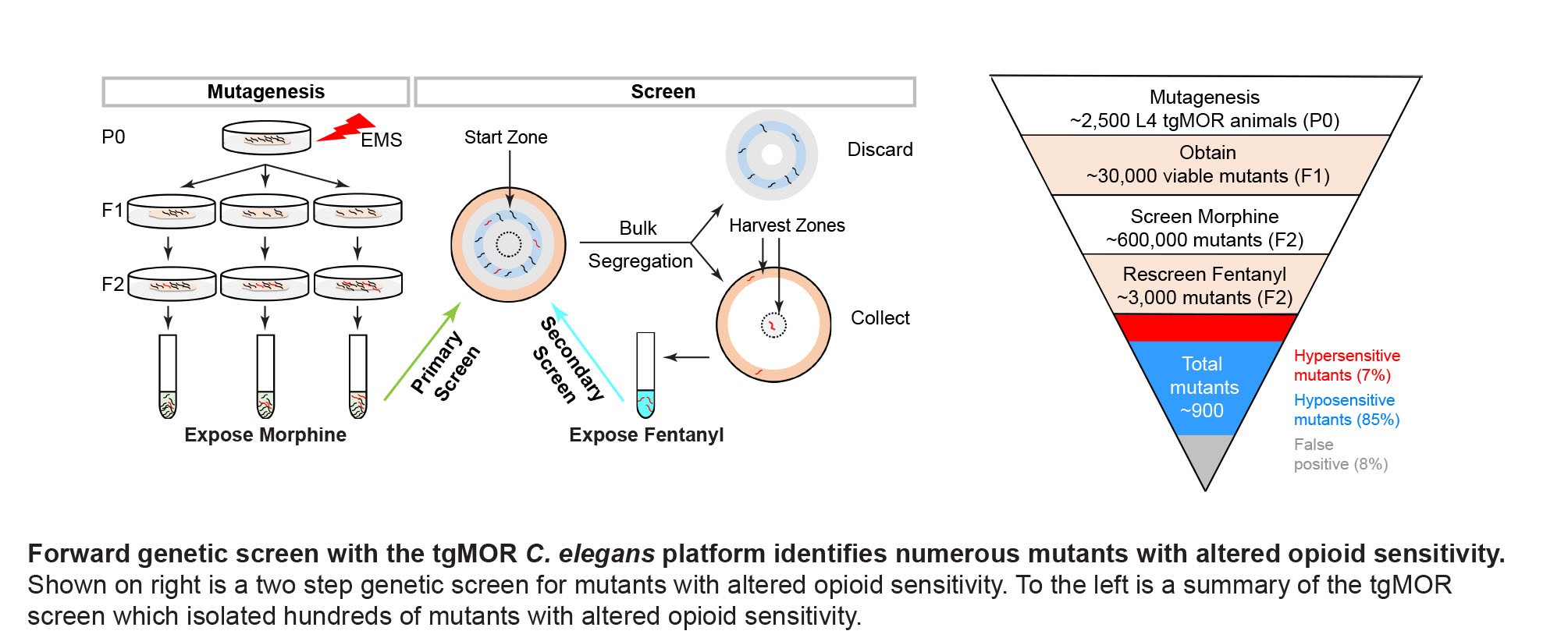Using Forward Genetics to Identify Regulators of Opioid Sensitivity and Tolerance

We have spent the past decade pioneering an innovative new line of investigation that aims to understand how u-opioid receptor (MOR) signaling, sensitivity and tolerance are regulated. The implications of this work are far reaching, as MOR is the principle GPCR that mediates analgesia and addiction to opioids.
We engineered the first transgenic C. elegans model of MOR signaling (tgMOR), which has robust behavioral responses to opioids. Combining the tgMOR platform with unbiased, forward genetics allowed us to identify numerous, novel regulators of MOR signaling and trafficking that affect opioid sensitivity and tolerance. One example is the orphan GPCR FRPR-13 we identified in C. elegans and its mammalian ortholog GPR139. FRPR-13 and GPR139 functions as a conserved anti-opioid system from C. elegans through mammals. This is the first time that forward genetics has been used to study opioid sensitivity and tolerance in any system. Our unpublished work indicates there is much dark biology behind MOR signaling and potentially a larger network of unknown signaling territory that MOR orchestrates to mediate responses to opioid drugs.
We are also now poised to embark upon developing powerful new engineered behavioral models of GPCR signaling using our C. elegans platform.
Our work is made possible in part by a generous gift in honor of Timothy Jackson.

